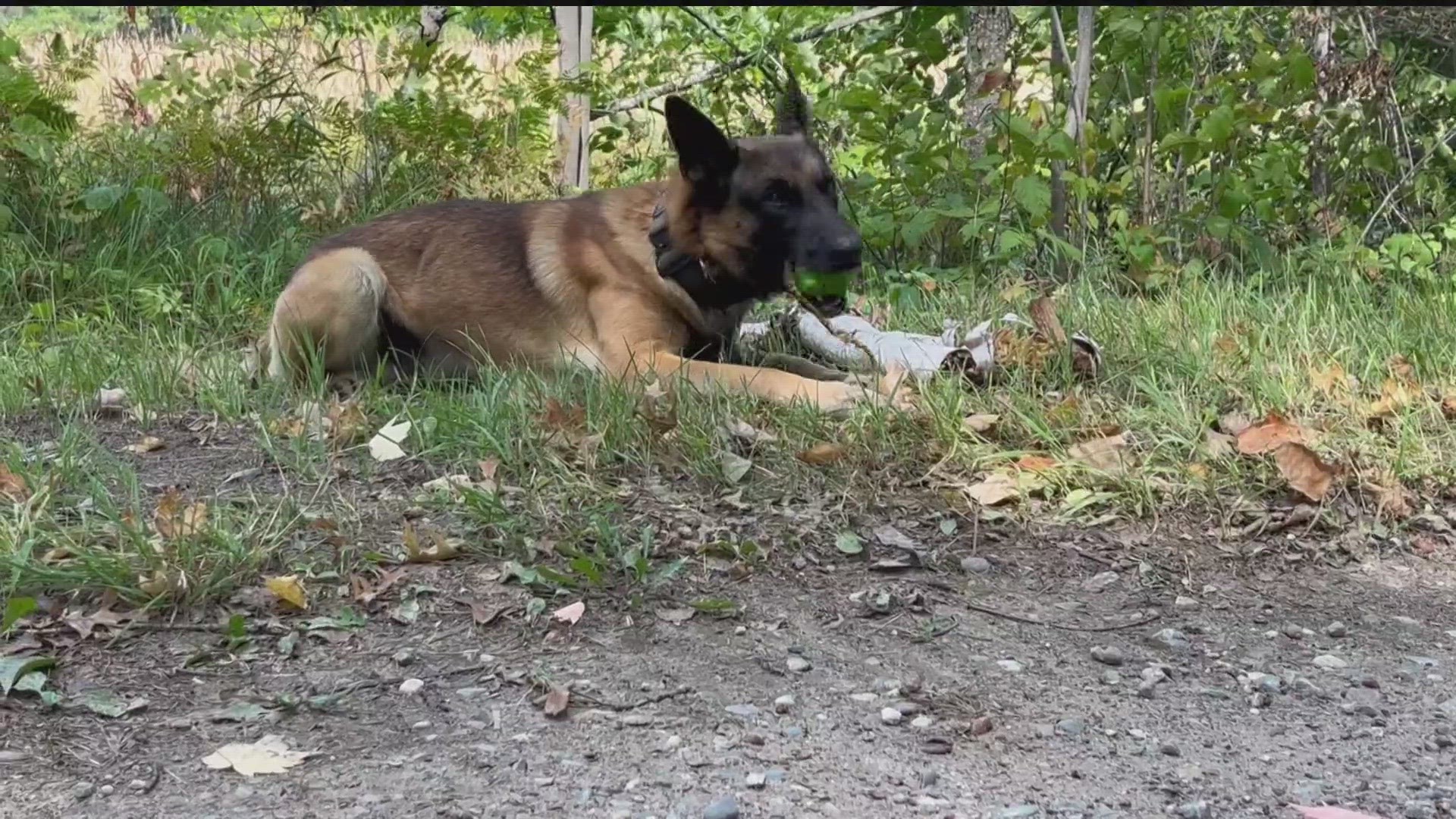EAST BETHEL, Minn. — Fall hunting season is almost upon us, which is why the Minnesota DNR's K9 teams are ramping up training.
The agency invited the media Monday to the Carlos Avery Wildlife area north of the Twin Cities Monday to show various scenarios the handlers use to train their animals. The dogs are often used to search for lost hunters or trespassers, or to look for weapons or game that illegal hunters may have tossed while trying to avoid a citation.
There's a host of overlapping hunting seasons coming up, so the dogs will be busy.
"Duck hunting, small game hunting, bow hunting, deer hunting, all the hunting activities, this is when our officers are out in the field really making cases," Lt. Philip Mohs, who is paired with K9 "Mack" at DNR, told KARE.
"The dogs play a huge role in that to assist them. These five K9 teams all travel the state from border to border. They’re not only making cases for themselves, but they’re also assisting other conservation offices out in the field that may need the dog to help them."
In Monday's demonstration for the media, a DNR officer played the role of trespasser in one scenario, a lost hunter in another, and an illegal hunter in yet another. In each case DNR conservation officers were alerted to a situation and called in a K9 unit to join the effort.
"Is the season open? Is it a protected animal? Do they have the proper license for that?" Lt. Mohs explained.
"Maybe this is his sixth grouse and he’s only allowed to have five, so we’re looking for the limits and everything like that."
The animals can search for tossed weapons and spent ammo to help make the case for issuing a citation to a potential violator.
"We’ve had this real scenario multiple times where conservation officers are working out in the field and the officers observe the individual with a gun, and the next thing you know that individual comes out and states they didn’t have anything, and they didn’t hide anything."
At times just being told that a K9 unit has been dispatched is enough to get the violators to come clean and admit they were hunting. The dogs are persistent and will keep looking.
Mohs said his own K9 partner, "Mack" spent two hours in the wild looking for a gun before finally locating it. When the dogs find what they're looking for they sit next to it waiting to be released from that position from their handlers and rewarded.
That reward can be food or a coveted ball or chew toy that has been part of the training regimen.

